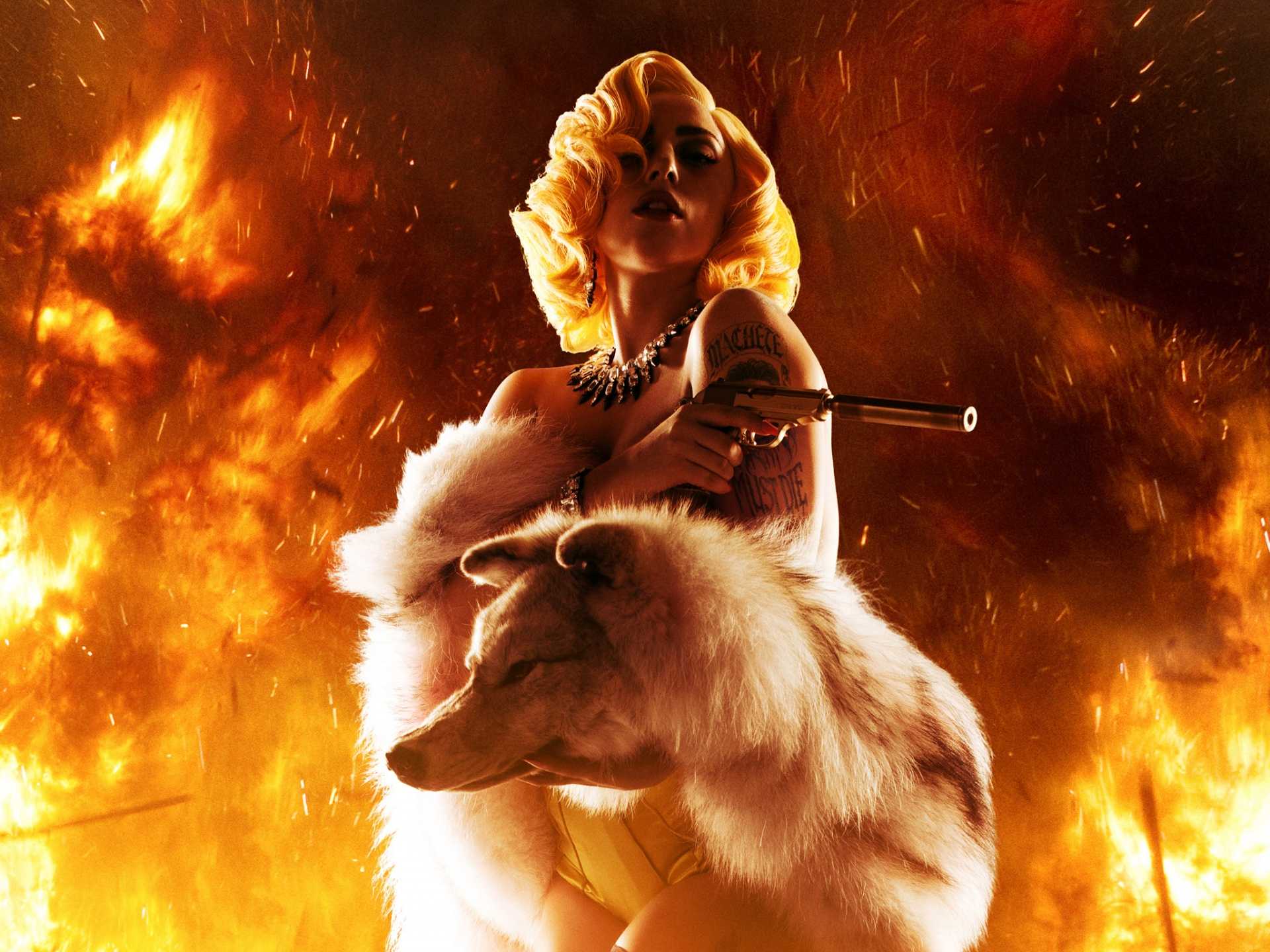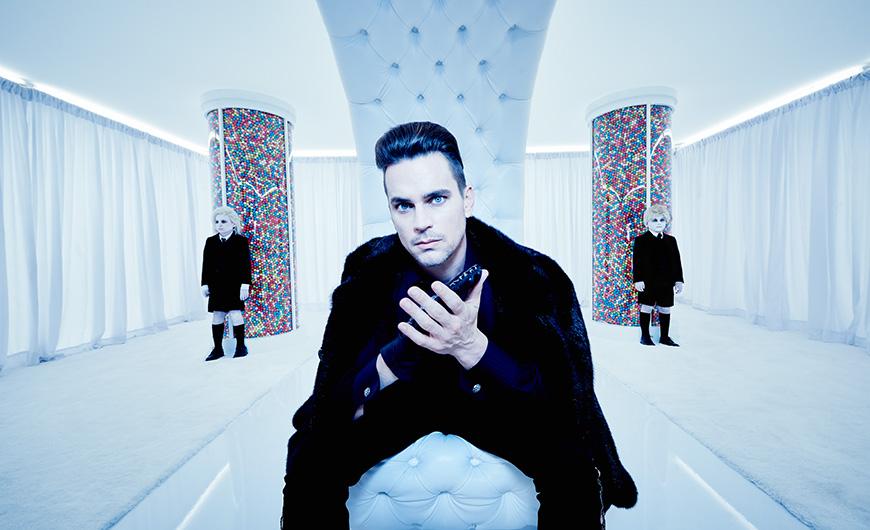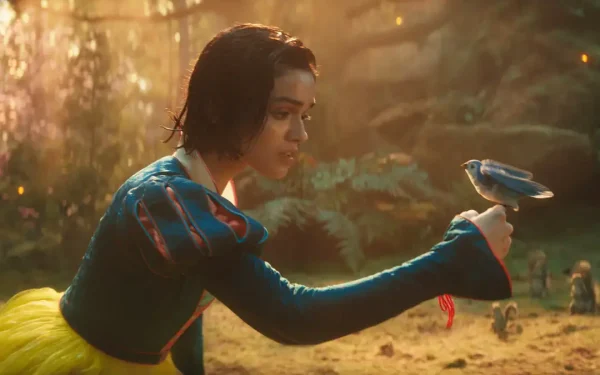Fans won’t go Gaga for American Horror Story: Hotel
FX’s American Horror Story has managed to accomplish something it hasn’t in the past two years: the first episode of season five was more frightening than the title scene. The scares and ominous atmosphere were consistent throughout the premiere rather than clustered in a single section, a welcoming return to tradition that quells the fear that the series has lost its fright-inducing touch. Don’t get too excited, avid horror lovers: horrific shock value doesn’t equate to a quality plot, a fact which ultimately what made this premiere a complete dud.
The backbone of the show, which was an almost satirical juxtaposition of the horror genre and American daily life, has been stripped away, leaving the dull remnants of gratuitous gore and tasteless sexual exploitation. The episode, much like the witch-centric season 3, explores the same controversial themes of sexuality and insanity it did in season 1, but doesn’t do much other than dangle the promise of insight beyond the grasps of its audience without allowing them to come too near.
Opening with an increasingly distressing situation is a recurring of this series. The starting sequence of two Swedish guests slowly succumbing to the madness of the Hotel Cortez is appropriately harrowing and sets the mood for the latter hour of the episode. Atmospherically, American Horror Story excels once more, with series creator Ryan Murphy making the most of his trademarked fish-eye lens and prolonged facial shots to truly convey the horror of helplessness. Each dark and eerie corner of the Cortez conceals a disturbing secret, whether a deranged gimp-like monstrosity or an enigmatic serial killer with a taste for elaborate murders.
The killer is what drives the primary plot forward once Los Angeles police detective John Lowe, played averagely by series newcomer Wes Bentley (though in his defense, the script only gives him a chance to be angry, confused, or briefly delighted to see his daughter), gains the attention of the murderer. Ironically, once the plot begins to gain traction, it quickly derails and heads toward a tale more interested in edgy Tumblr-esque aesthetics rather than a riveting story of a cop seeking to solve a murder.
The specific murder that earns the attention of Lowe is gruesomely intricate. A man, who’s eyes are gouged out and tongue is severed, is found bloodied, naked, and impaled in a manner that allows him to still live. The attention to detail showcases Murphy’s tendency to replace plot progression with superfluous gore.
Lady Gaga, featured as main antagonist “The Countess”, is introduced indulging in her cannibalistic desires. The scene possesses more sexual content than horror, though, and lasts an uncomfortable amount of time. It is not the sex act itself that is quizzical – it is how it requires a three minute orgy for a director to properly display a character’s sadistic bloodlust.
What could be an intriguing aspect to her well-played character becomes a hastily added excuse for her motives. Perhaps Gaga is an idealist who provides solace for the world’s outcasts? Or maybe she is fleeing from a bleak past? Nope. She is simply another insane, murderous dominatrix who exploits her victim’s sexuality. Her flamboyant clothing and distinct method of murder only make her seem like more of a superficially frightening villain, meant to be interesting due to looks rather than her life. The constant focus on her allure or flashiness does little to add depth.

At one point, a brutal rape perpetrated against Max Greenfield’s rock star-like character (it should be noted he is not integral to the episode’s plot in any way) is placed in for no apparent reason other than to make Sarah Paulson’s Sally seem evil. Or at least that is what it seems the screenwriters intended. It is still puzzling how demanding to be loved by a man being forcibly raped is “evil” as much as “unnecessarily odd”. Time will tell whether or not her eagerness to be accepted will be significant to the story.
Irreverent characters do not make a story interesting: backstory and acting do. While Paulson accomplishes the second part, her brief flashback in which she does heroin to the objection of Kathy Bates’ excellent character Iris does little to appropriately establish tension between the two. As with Gaga’s Countess, Iris and Sally’s potential is wasted on conventional character progression.
Neither the few surprisingly well written characters nor the poor navigation of its subject matter define the episode. Rather, it is the surreal yet arbitrary violence that properly defines the plot as a whole. The episode in its entirety is distastefully gory, however, and lacks an immersive plot to parallel its horrific subject matter. Be aware, though; the gruesome deaths of the episode are not the most horrific aspect: it is the show’s inability to match its controversial situations with socially relevant meaning.
Your donation will support the student journalists of Hagerty High School. Your contribution helps us publish six issues of the BluePrint and cover our annual website hosting costs. Thank you so much!







